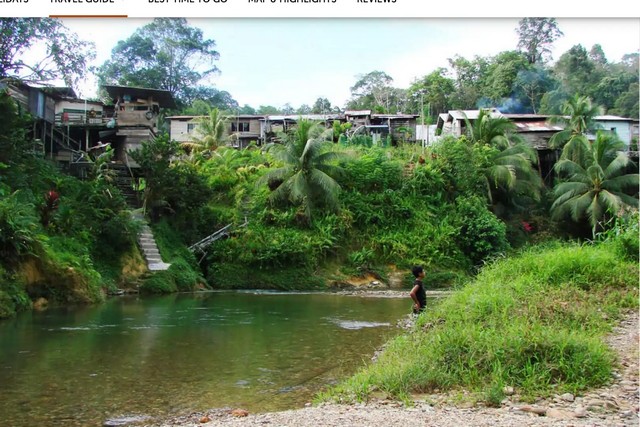On December 2024, Sarawak has reaffirmed its full commitment to sustainable tourism, emphasising a balance between economic growth, environmental conservation, and community well-being. This commitment was highlighted at HORNBILL@ICAE2024, the Fourth International Conference on Adventure and Ecotourism, where key government figures and industry leaders discussed strategies for responsible and resilient tourism development.
At the conference, Sarawak Premier Abang Johari Tun Openg stressed the importance of integrating sustainability principles into tourism policies and practices. More specifically, Sarawak must craft strategies that allow tourism to thrive without compromising ecological or cultural heritage.
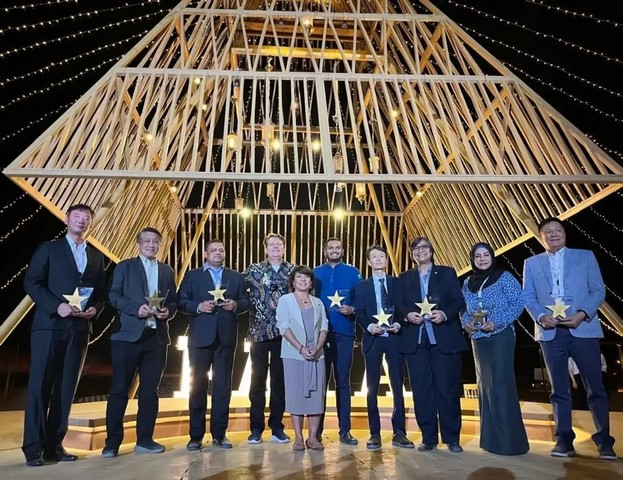
Sarawak’s Vision for Sustainable Tourism
While the concept of sustainable tourism is not new, Sarawak’s approach to the concept gained great traction and intensity after the events of the COVID-19 pandemic, whereby the tourism sector as a whole was negatively impacted. After the movement control order (MCO) has been lifted, tourism industries worldwide witness an influx of travellers with greater environmental awareness. Sustainability began to rise in priority, with elements like promoting environmental stewardship and support of local communities cited as desirable qualities in a travel destination.
Matching the trend, Sarawak’s vision and strategy for sustainable tourism is designed to align with its Post-COVID-19 Development Strategy (PCDS) 2030, ensuring that economic growth goes hand in hand with environmental and social responsibility. According to the Premier, responsible tourism must minimise negative economic, environmental, and social impacts while generating greater benefits for local communities. This vision was formally declared in the Sarawak Commitment to Responsible Tourism on 28 May 2021.
Sarawak’s Key Commitments in Sustainable Tourism
Sarawak’s sustainable tourism centres around creating value around its unspoilt jungles, waterways, and forest habitats, ensuring that tourism supports local livelihoods, conservation efforts, and iconic wildlife such as orangutans. Since as far back as 2011, the state has taken major steps to conserve its unique forests, with 1,000,000 hectares of Totally Protected Areas (TPAs) off-limits to logging, as well as buffer zones, High Conservation Value Forests, and Native Customary Rights lands remaining pristine. Sarawak’s land-use policy aims for 6 million hectares of natural forests, and 1 million hectares as Totally Protected Areas (TPAs) for conservation.
To encourage responsible travel, visitors are urged to take the Sarawak Responsible Tourism Pledge, which includes commitments such as:
“I pledge to discover Sarawak responsibly.”
“I pledge to value aspects of Sarawak’s culture and heritage sites.”
“I pledge to seek wonder in the beauty of nature, but stay on the path.”
Sarawak also promotes low-impact tourism activities, including cycling tours, bird-watching, longtail boat trips, and longhouse homestays, where visitors directly support local communities and conservation efforts. National park entrance fees contribute to the upkeep of primary forests and wildlife protection. Some operators even offer reforestation programs, increasing habitats for endangered species.
Orangutan Conservation and Community-Based Tourism
Sarawak’s orangutan conservation efforts are among the best examples of community-led sustainable tourism. In Batang Ai National Park, the Ulu Menyang Wildlife Conservation Area is managed by the indigenous Iban people, the ancestral custodians of these landscapes. Tourists can stay in Iban longhouses, trek with local guides, and learn traditional crafts, ensuring that proceeds directly benefit the community. At the Matang Wildlife Centre and Semenggoh Orangutan Centre, visitors can observe rescued orangutans while learning about rehabilitation efforts. To prevent disease transmission, volunteers do not handle orangutans but instead assist with habitat restoration and infrastructure development.
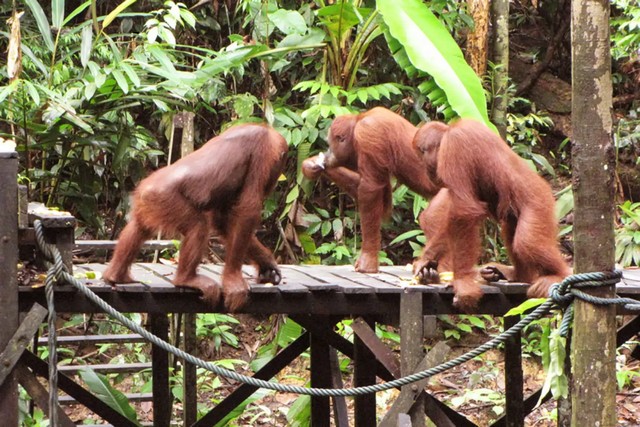
With its vast rainforests, 40 indigenous groups, and diverse ecosystems, Sarawak is a prime destination for eco-conscious travellers. By integrating sustainability into tourism policies and engaging local communities, Sarawak is paving the way for a responsible and resilient tourism industry.
Sarawak’s Sustainable Tourism and Its Alignment with the UN Sustainable Development Goals (SDGs)
Sarawak’s commitment to sustainable tourism is closely aligned with the United Nations’ Sustainable Development Goals (SDGs). Through various initiatives and policies, Sarawak Tourism Board (STB) and its partners are ensuring that tourism growth supports environmental conservation, community development, and responsible consumption practices.
SDG4: Quality Education
Ensuring inclusive and equitable quality education is a core principle of Sarawak’s responsible tourism approach. Education and awareness initiatives empower local communities, tourism stakeholders, and visitors with knowledge on responsible tourism practices.
- E-Pelancongan on Responsible Tourism Module: Part of the Responsible Tourism Initiatives Programme, this online learning platform educates users about Sarawak’s tourism landscape, culture, and responsible travel practices, emphasizing community-based tourism.
- ‘Jejak Digital’ Initiative: A digital expansion programme developed in collaboration with Sarawak industry partners to boost tourism’s digital footprint, particularly supporting the industry during the COVID-19 pandemic.
- Community Outreach Programme and Responsible Tourism Talk: Conducted in Long Bedian, Baram, and Mulu Marriott in 2021, these sessions promoted awareness of sustainable tourism.
- Responsible Tourism Webinar: This initiative educates businesses, communities, and individuals on sustainable tourism best practices, maximising the positive social, economic, and environmental impacts of tourism.
SDG11: Sustainable Cities and Communities
Sustainable tourism contributes to creating inclusive, safe, resilient, and sustainable urban and rural settlements.
- CSR with Society Atelier Sarawak (SAS): A corporate social responsibility programme under the Rainforest World Music Festival (RWMF), providing local artisans with skills training in bead crafting, traditional handicrafts, and product photography to enhance competitiveness in today’s market.
SDG12: Responsible Consumption and Production
Sarawak’s tourism industry integrates sustainable consumption and production strategies to minimise waste and promote eco-friendly practices.
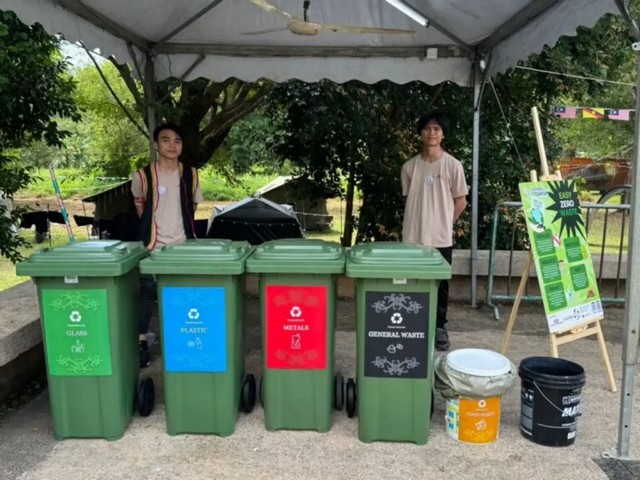
- Festivals & Waste Reduction:
- #Urbins x RWMF: A pilot project inspiring environmental responsibility through community-designed recycling bins placed at festival venues.
- Ban on Single-Use Plastic Water Bottles: Free water refill stations and collapsible cups were introduced at RWMF 2019, significantly reducing plastic waste.
- Shuttle Buses & Upcycling Initiatives: Public transport options to reduce carbon footprints; past festival advertising banners are repurposed into tote bags.
- Volunteer & Green Ambassador Programmes: Collaboration with Biji-Biji Initiative to implement waste management strategies and raise awareness about recycling and composting.
- Sustainable Procurement: Preference for eco-friendly, locally sourced materials and biodegradable food packaging to support local businesses and reduce environmental impact.
- Food Waste Composting: Partnerships with social enterprises like WormingUp to redirect food waste into composting and sustainable agriculture.
- GreenRuai: A pavilion centre that was built in RWMF2024 that showcased greening innovations, initiatives and sustainable practices such as off-grid solar power solutions for agencies and festival attendees to collectively learn, educate and contribute to maintaining a green and safe environment.
- Greening Initiative: Utilised at RWMF2024 through various activities such as food composting and the use of 10 eco-stations provided during the festival in order to educate festival goers on the importance of waste segregation and reduction.
- Homestay Programme:
- Waste management and recycling workshops for homestay operators (2020-2023), including soap-making, keychain crafting from recycled plastics, and textile-based bag-making initiatives.
- Waste Management Programme:
- Initiated with hotels in collaboration with WormingUp Sdn. Bhd., later expanded to local restaurants, shopping malls, and communities, raising awareness of food waste management and landfill reduction.
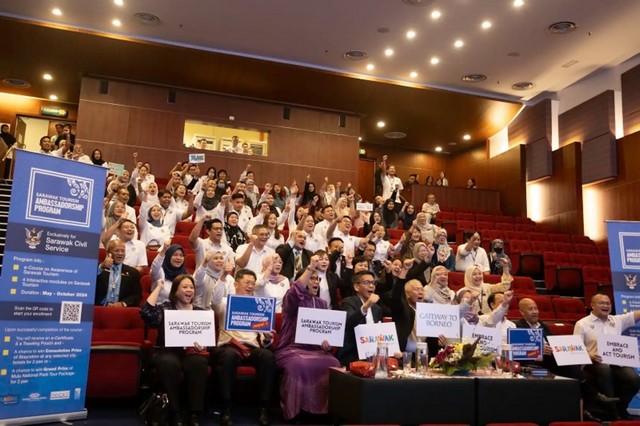
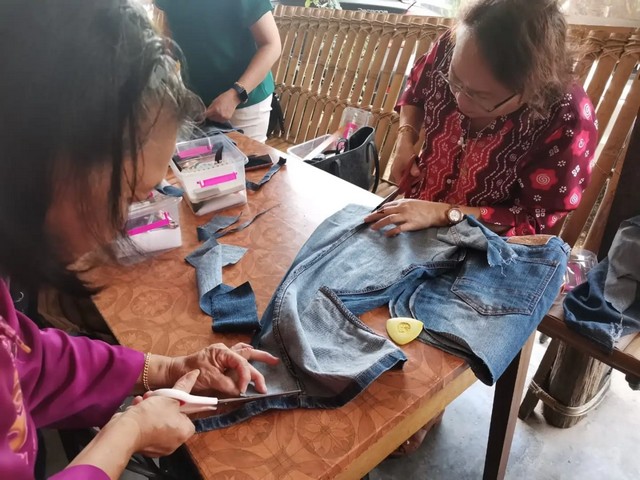
SDG13: Climate Action
Sarawak integrates climate action into its sustainable tourism policies through conservation, carbon offset initiatives, and tree-planting programmes.
- Tree Planting Efforts:
- Annual Tree Planting Since 2011: Mangrove tree-planting at Kuching Wetlands National Park to enhance coastal resilience and biodiversity.
- EcoGreen Planet: A post-festival tree-planting initiative in partnership with the Sarawak Forestry Corporation, funded by ticket sales and sponsorships. Contributed to Sarawak’s goal of planting 35 million trees by 2025 (with 10,000 trees targeted for 2027) through a reforestation programme, supported by festival-goers and sponsors.
SDG17: Partnerships for the Goals
Sarawak’s responsible tourism journey is built on collaboration between government agencies, businesses, local communities, and international partners.
- Multi-stakeholder engagement in sustainable tourism planning, integrating economic, social, and environmental sustainability.
- International partnerships for knowledge exchange on best practices in responsible tourism.
- Collaboration with NGOs, academic institutions, and private enterprises to enhance sustainability initiatives in the tourism sector.
Through these targeted initiatives, Sarawak continues to position itself as a leader in sustainable tourism, ensuring long-term environmental protection, economic resilience, and community well-being. By aligning with the SDGs, Sarawak demonstrates its dedication to global sustainability efforts while offering unique and responsible tourism experiences.
Sarawak’s Tourism & Sustainability Performance
Sarawak’s commitment to sustainable tourism has contributed significantly to its economic and environmental progress, receiving global recognition. In its first year of assessment in 2021, Sarawak scored 41% on the Global Destination Sustainability Index (GDS-Index), outperforming several new and returning destinations.
When looking at post COVID-19 recovery performance indicators, the results are hopeful. In 2023, Sarawak received 3.92 million visitors; a 93.82% increase from 2022. This resulted in RM9.99 billion in tourism revenue, marking a 101.41% rise, contributing 7.11% to Sarawak’s Gross Domestic Product (GDP).
Within the first quarter of 2024, Sarawak recorded 1.18 million visitor arrivals, generating RM3.07 billion in tourism receipts—a 31.2% growth from the same period in 2023. By November 15 2024, Sarawak surpassed its target of 4 million visitors for the year. For reference, Sarawak’s highest recorded visitor arrivals were in 2019, with 4.6 million tourists. Following the boom in visitor arrivals, Minister of Tourism, Creative Industry, and Performing Arts, Dato Sri Abdul Karim Rahman Hamzah forecasts a full recovery of Sarawak’s tourism sector by 2025, aiming for 5 million visitors and RM12.73 billion in tourism receipts.
Overall, it can be said that Sarawak’s commitment to responsible tourism continues to set a benchmark for sustainable development, ensuring long-term benefits for its people, environment, and economy.
Challenges in Sustainable Tourism
Despite Sarawak’s commitment to sustainable tourism, several challenges persist, which require continuous efforts to address. Despite the recovery of the tourism industry, rapid globalisation continues to threaten natural resources, increase competition, and influence local communities —especially youths — away from traditional culture and environments.
Furthermore, studies in the region had noted that while youths have innovative potential, due to methodological and ethical issues, they are often perceived as having less market value for tourism business and development. As such, they are often excluded from tourism development decisions and have limited impact on the industry. For example, in Homestay Kampung D’ Belimbing, it was found that the elders rarely accept youths’ views and continue using their existing ideas and strategies to manage the homestay programme.
While major strides have been made to cover different sustainability activities with expanded community involvement, Sarawak tourism industry still faces human resource issues such as a lack of skilled employees, high workforce turnover, and insufficient motivation among tourism workers.
When we consider the scale of Sarawak’s vision for tourism, government support remains limited, and more public-private partnerships and is still required to reach the required scale of tourism sustainability efforts. Differing interests between sustainability advocates, tourism entrepreneurs, and local communities further complicate consensus-building for sustainable tourism.
Future Prospects for Sustainable Tourism in Sarawak
Despite these challenges, Sarawak is well-positioned to further advance its sustainable tourism agenda. Through numerous conservative initiatives across 30 national parks, it is globally acknowledged as one of the most desirable travel destinations across Southeast Asia that rightfully prioritises environmental conservation and cultural preservation. With the continuous expansion of eco-tourism, green tourism, and responsible travel practices, it is expected to attract more sustainability-conscious visitors.
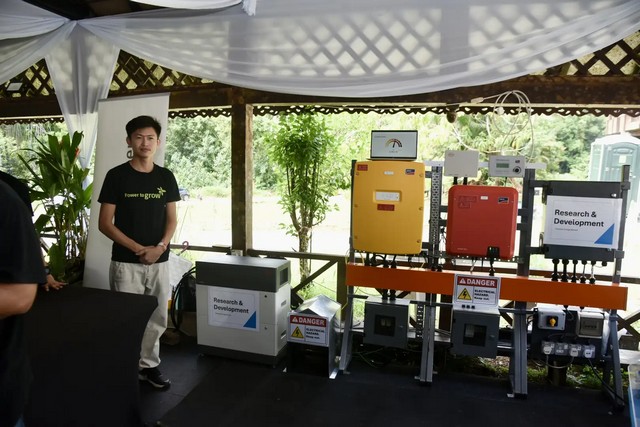
If Sarawak is to reach its sustainability tourism targets, more youths should be engaged to take on the mantel as future leaders that would educate more responsible travellers and propel the industry forward for the next generations. To reach this demographic, more partnerships between governments, businesses, and NGOs is necessary to improve tourism education, funding, and policy frameworks that would set a strong foundation and workforce. Simultaneously, the state should continue to promote waste management across sectors, reducing overall reliance on fossil fuels, and increasing energy efficiency to minimise tourism’s environmental impact.
A Collective Responsibility for a Sustainable Future
The journey toward a truly sustainable tourism industry requires collective effort. Visitors, businesses, policymakers, and local communities all have a role to play in shaping a more responsible tourism landscape. Whether by supporting eco-friendly businesses, respecting local traditions, or advocating for sustainable policies, every action contributes to a thriving, resilient tourism sector.
As Sarawak advances its vision, it calls on all stakeholders to join hands in protecting its natural wonders, empowering its people, and ensuring that future generations can continue to experience the beauty and cultural richness of the region.
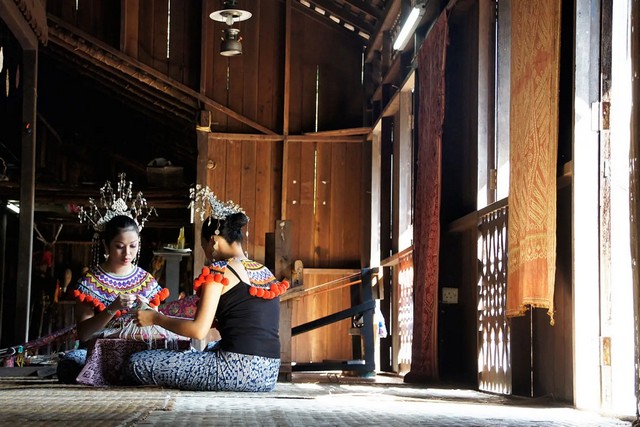
References
- Sarawak pledges full commitment to sustainable tourism at HORNBILL@ICAE2024
- Sarawak Responsible Tourism website
- Sarawak Launches Revolutionary ‘Embrace and Act Tourism’ Ambassador Programme for Sarawak Civil Service to Foster State-wide Tourism Advocacy Towards Achieving 4 Million Visitors Arrivals
- Sarawak Tourism Board’s Ecogreen Planet Initiative Plants 2,000 Seedlings at Bukit Lima Nature Reserve
- The Natural Solution | Responsible Tourism
- Sarawak’s tourism surges in 2023: 3.92 mil visitors generate close to RM10 bil in revenue, contributing 7pct to GDP
- Sarawak surpasses 4-million tourist target for 2024, hopes to reach 5 million in 2025
- Third Sarawak Tourism Master Plan 2021-2035
- Global Destination Sustainability Index (GDS-Index) – Sarawak Partnership
- The Best Practices of Youth in Responsible Tourism: Insights from Malaysia, Myanmar, Philippines, Thailand, and Vietnam
- Sustainable Business Development in Sarawak Tourism Sector and Assessing the Impact of Contributing Factors Mediated by Tourism Practices and Initiatives on Business Survival
- Survey of travellers finds 76% want more sustainable options


